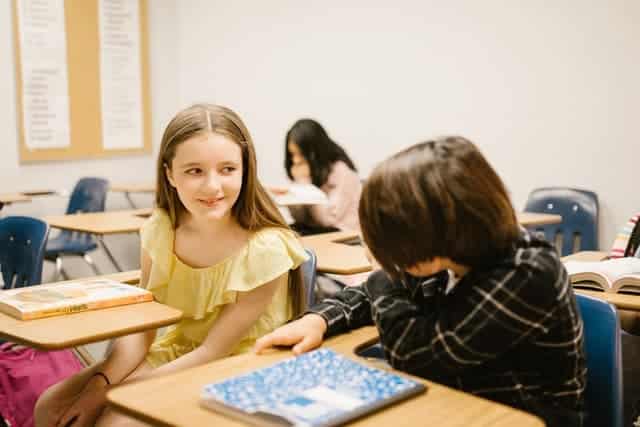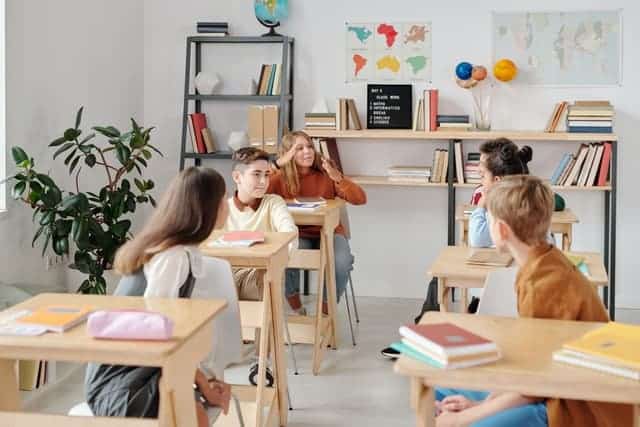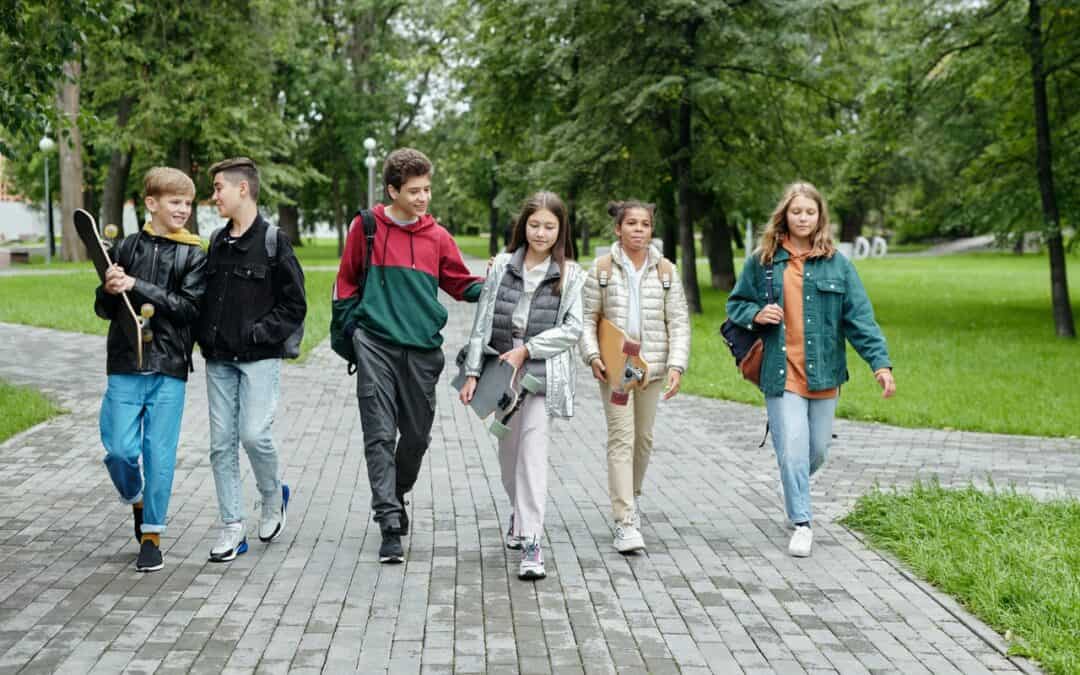School is a natural environment for children to make friends. Many children have a natural social instinct, though some do not. Putting several kids together and giving them activities in common creates an environment for children to develop friendships naturally at school. However, children won’t only make friends at school. After-school activities and sports, church, and other environments that encourage teamwork and socialization are also places where children will build their social circles.
Educators can help children improve their friendship-building skills. Providing strong social skills to all children in the classroom helps the whole classroom by leveling the playing field for both the socially awkward children and the socially outgoing children. Teaching children how to make friends at school and providing effective conversation starters will prepare them for one of the most useful and most frequently important experiences: connecting with people.
As for homeschooled children, it might not be as easy to teach children how to make friends while at home unless in a co-op. However, homeschooled children will still be able to learn how to make friends through learning social skills taught by the parent or third-party educator. Learning effective conversation starters, and strong social skills, in general, will prepare homeschooled children for successful and rewarding social lives as well.
How to Make Friends at School
According to WebMD, “Healthy friendships are also linked to better cardiovascular health, lower blood pressure, less depression, and a longer life. So it never hurts to try to make new friends.” (WebMD)
It’s a comfort to know that there are health benefits for friendships. However, children don’t need to know that there are health benefits to recognize that making friends is a good idea.
The job of educators is to create environments where children have equal opportunities to make friends, regardless of whether children are shy or outgoing.
Skills to teach children how to make friends include:

- Saying yes to invitations
- Taking initiative in social situations
- Starting conversations (Sharing something about themselves is a good way to start.)
- Showing interest in what other people are saying
- Smiling and making eye contact
- Share details about themself
- Practicing small acts of kindness
- Demonstrating persistent interest
Social skills aren’t necessarily obvious to some children. In fact, some children might find the prospect of trying to make friends both frustrating and intimidating. Even outgoing children might not have any natural instincts for how to pursue a rewarding relationship. Designing classroom activities that encourage the social skills listed above will help children start pursuing rewarding friendships.
While children learn what skills help them make friends, some children will also benefit from learning a few things not to do in a conversation to foster stronger friendships.
For instance:
- Act with honesty.
- Avoid bragging. While educators should try to show children they can be proud of their accomplishments, there should be some distinction made between talking about things they’re proud of themselves for and bragging about them.
- Limit aggressive conversation tactics. Children might need to learn not to be too forceful with new acquaintances. They may also need to be introduced to spacial boundaries.
- Learn patience. Children might need to learn that friendships can take a long time and need to be nurtured.
Another important and not necessarily intuitive skill that children need to learn about making friends is recognizing when they have successfully made a friend.
For instance:
- Another child takes the initiative in the relationship
- When it feels comfortable to be around a person and talk to them
- When it becomes natural to share feelings with the person
The skills involved in learning how to make friends might not seem like teachable skills. However, nothing could be further from the truth. There are objective and clear indicators related to making friends, and anything objective and clear can be taught.
Conversation Starters

A fairly straightforward skill educators can create activities around is conversation starters. It’s a mystery to some children how to initiate a conversation. It may be an effective use of classroom time to design an activity where children come up with conversation starters.
For example:
- What animal would you like to be and why?
- What’s the longest walk you’ve ever taken?
- What would you do if you didn’t have a TV?
- If you could go anywhere, where would you go?
- What’s your favorite story?
- What’s your favorite song and why do you like it?
- If you had a superpower what would it be?
Implementing this activity in the classroom allows children to think of things they would like to use in conversations without the pressure of performing on the spot.
A follow-up activity to this is roleplaying these conversation starters with other kids in the classroom. Roleplay provides the opportunity of helping children practice starting a conversation and thinking about what happens after the conversation continues.
Conversation skills are just as important as any other life skill. Activities that foster learning opportunities for children to learn how to make friends will prepare children for success in life.
For an online program on social emotional learning that includes social engagement exercises, view Tools From The Heart.
If unable to teach social skills in the classroom, or if an educator would like assistance teaching social skills, you can receive help with virtual social learning activities. Soul Shoppe provides social emotional learning programs for children and educators that can be completed online. Soul Shoppe strategies encourage empathy and emotional awareness in children. Whether helping in the classroom or assisting parents at home, Soul Shoppe brings social skills to the forefront of the discussion. Click for more information on SEL Programs for Elementary Schools, homeschool social emotional electives, or our parent support programs.
You May Also Like:
Conflict Resolution Activities for Kids
Virtual Social Emotional Learning Activities


